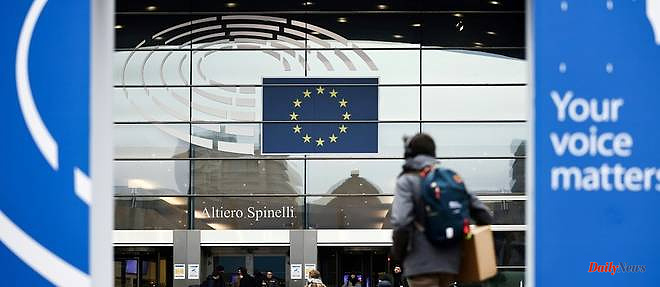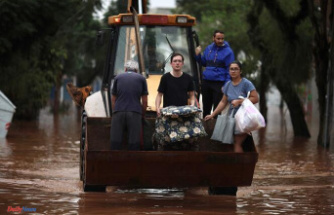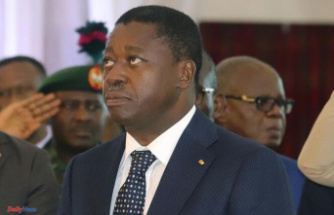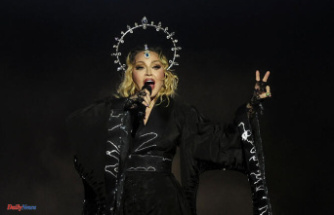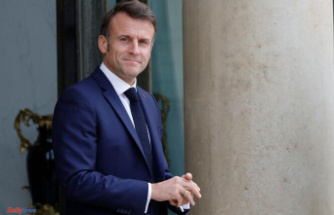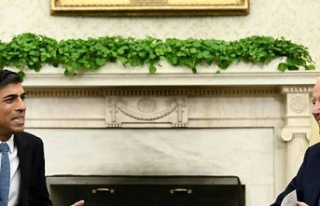Brussels presents Thursday its project for a new body responsible for establishing ethical standards for the European institutions, a progress promised even before the scandal of "Qatargate" which is considered very insufficient by experts and MEPs.
Commission President Ursula von der Leyen had already pledged to create such a structure before her term began in 2019. The project had been delayed but found new momentum after the alleged corruption scandal rocked parliament European in December 2022.
"It must be established before the" European elections of June 2024 to strengthen "confidence" of voters with "simple and understandable rules" imposed on officials, insisted on Tuesday the Vice-President of the Commission Vera Jourova, in charge of values and transparency, during a conference with the EU ombudsman.
According to a Eurobarometer poll published on Tuesday, only 35% of Europeans say they are satisfied with the fight against corruption within the EU.
The proposed structure would be responsible for developing common ethical rules in a series of areas: declarations of assets and interests, outside activities during and after the mandate, gifts, invitations and trips, honorary distinctions, meetings with lobbyists...
These standards would be binding on the political leaders of nine EU institutions. They would concern in particular all the European commissioners - but not the civil servants who are already subject to a common regulation -, the MEPs (but not their parliamentary assistants), the President of the European Council, the ministers of the country occupying the rotating presidency of the Council of the EU.
These institutions, which also include the Court of Justice of the EU, the Court of Auditors and the European Central Bank, would be required to align their own rules at least to the level of the standards set, and would be solely responsible for their application.
The ethics body, made up of representatives of the institutions concerned and independent experts, will have no powers of investigation or sanctions, as the European executive considered that this would never have been accepted by the institutions.
"I propose a structure defining common standards (...) But it will not be painless, these standards will have to be applied", insisted Ms. Jourova.
Critics of the project continue to call for an independent authority with broad powers.
"We need a body with investigative powers to be able to prevent, rather than cure and risk undermining the confidence of our fellow citizens (...) It would be totally incomprehensible for the institutions to continue to control themselves themselves," said Renew MEP Gilles Boyer. The group of centrists and liberals claim that they cannot support "an empty ethics body".
"There is deception in the label: what is proposed has nothing to do with the debates we had in the European Parliament after Qatargate (...) It would be a committee where the different institutions would come and discuss what a gift or a conflict of interest is, that's not what is necessary!", commented MEP Daniel Freund (Greens) on Tuesday.
His report, adopted by parliament in September 2021, proposed a body with the power to investigate and recommend sanctions.
The ethical organization in preparation "appears weakened to the point of becoming a simple cosmetic change", also believes Alberto Alemanno, professor of European law at HEC Paris.
In the wake of Qatargate, "six months of debate has shown that creating a robust ethical framework is no easy task", and "political, legal and administrative discussions" have clouded "the clear approach of the early days “, observes the ombudsman of the EU, Emily O’Reilly.
She is also concerned about the very modest means proposed for the organization: three employees and an annual budget of 600,000 euros, according to Ms. Jourova.
Emily O'Reilly believes that it will all be a question of implementation. The most ethical administrations "are not necessarily those with the longest rules, but those where the culture of integrity is so entrenched that these rules become almost superfluous", she explains. Changing mindsets is likely to take time and the new body "will not be an immediate solution", she warned.
08/06/2023 04:29:32 - Bruxelles (AFP) - © 2023 AFP

